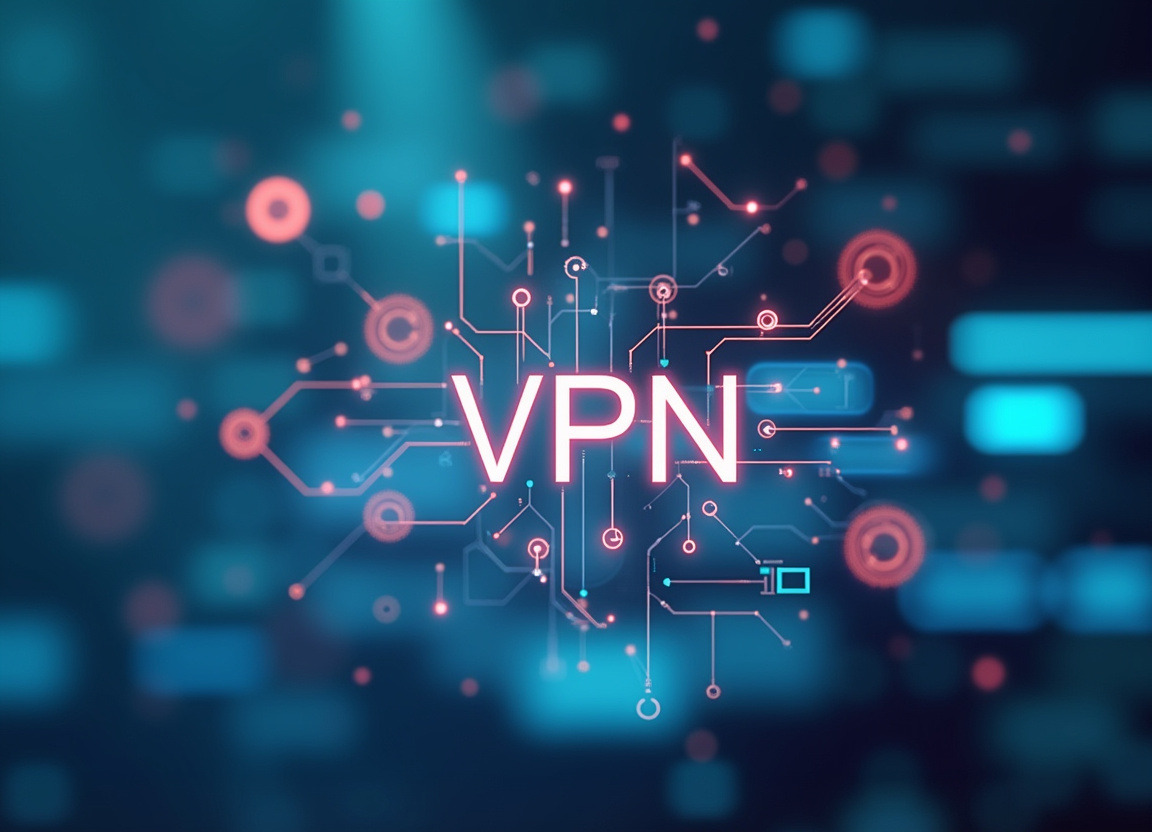VPNs for Telemedicine: Ensuring Doctor-Patient Confidentiality

Table of Contents
Telemedicine VPN: Ensuring Doctor-Patient Confidentiality in the Digital Age
The convergence of healthcare and technology has ushered in an era of unprecedented accessibility and convenience through telemedicine. This innovative approach to healthcare delivery, encompassing remote consultations, virtual check-ups, and continuous remote monitoring, transcends geographical barriers, providing patients with access to specialized medical expertise from the comfort of their homes. The benefits are manifold, ranging from reduced travel time and costs for patients to increased efficiency and resource optimization for healthcare providers.
However, this digital revolution also introduces a critical challenge: safeguarding the confidentiality of sensitive patient data in the interconnected online environment. In the traditional setting, doctor-patient confidentiality is maintained within the physical confines of a clinic or hospital. However, telemedicine relies on internet-based communication channels, inherently exposing sensitive health information to potential cyber threats.
This underscores the vital role of robust security measures like a telemedicine VPN. Maintaining doctor-patient confidentiality is not merely a legal requirement; it is a cornerstone of ethical medical practice and essential for fostering patient trust. Patients must have confidence that their personal health information will be handled with utmost care and protected from unauthorized access, disclosure, or misuse.
A breach of confidentiality can erode patient trust, leading to reluctance in seeking necessary medical care and ultimately undermining the effectiveness of telemedicine. In the digital realm, protecting the confidentiality of sensitive health information necessitates the implementation of a multi-layered security approach. A Virtual Private Network (VPN) for healthcare plays a crucial role in this strategy by creating a secure and encrypted tunnel for data transmission between the patient and the healthcare provider.
This encrypted tunnel effectively shields sensitive patient information from prying eyes, preventing unauthorized interception or manipulation of data during transit. The importance of data protection in telemedicine cannot be overstated. Healthcare providers handle a vast amount of personal and sensitive data, including medical histories, diagnoses, treatment plans, and financial information.
This data is highly valuable to cybercriminals, who may seek to exploit it for identity theft, financial fraud, or other malicious purposes. A data breach in the healthcare sector can have devastating consequences for patients, healthcare providers, and the entire healthcare system. Furthermore, healthcare organizations are subject to stringent regulations governing the privacy and security of patient health information.
In the United States, the Health Insurance Portability and Accountability Act (HIPAA) mandates the protection of Protected Health Information (PHI) and imposes severe penalties for non-compliance. Similar regulations exist in other countries, reflecting the global recognition of the importance of safeguarding patient privacy. Implementing a telemedicine VPN is a crucial step in achieving HIPAA compliance and demonstrating a commitment to data protection best practices.
By securing the communication channels used for telemedicine, a VPN helps healthcare providers meet the technical safeguards required by HIPAA and reduces the risk of data breaches. Therefore, understanding the capabilities of a VPN for healthcare and implementing it effectively is not merely a technological consideration but a fundamental requirement for any healthcare provider engaged in telemedicine. The adoption of telemedicine VPN solutions can significantly enhance the security posture of healthcare organizations, fostering trust among patients and ensuring the integrity of remote healthcare services.
Furthermore, the implementation of a telemedicine VPN demonstrates a commitment to ethical medical practice and compliance with data protection regulations, solidifying the reputation of the healthcare provider as a responsible and trustworthy entity in the digital age. As telemedicine continues to expand its reach, the role of VPNs in safeguarding doctor-patient confidentiality will only become more crucial, requiring ongoing vigilance and adaption to emerging cyber threats.
The Importance of VPNs for Data Encryption and Privacy in Virtual Consultations
Understanding the specific vulnerabilities inherent in telemedicine platforms is paramount to formulating an effective cybersecurity strategy. Unsecured communication channels, such as unencrypted video conferencing or messaging apps, can be easily intercepted by malicious actors, allowing them to eavesdrop on sensitive conversations and steal patient data. Weak authentication mechanisms, such as simple passwords or lack of multi-factor authentication, can also provide unauthorized individuals with access to patient accounts and health records.
Software vulnerabilities in telemedicine platforms or related applications can be exploited by attackers to gain control of systems, steal data, or disrupt services. These vulnerabilities can arise from coding errors, misconfigurations, or outdated software versions. Human error, such as accidental disclosure of patient information or failure to follow security protocols, can also lead to data breaches.
Healthcare employees must be adequately trained on data security best practices to minimize the risk of human error. Cyberattacks targeting healthcare organizations are becoming increasingly sophisticated and frequent. Phishing attacks, ransomware attacks, and distributed denial-of-service (DDoS) attacks can disrupt telemedicine services, compromise patient data, and cause significant financial damage.
The value of protected health information (PHI) on the black market makes healthcare organizations a prime target for cybercriminals. Stolen patient data can be used for various illicit purposes, including identity theft, insurance fraud, and the creation of fake prescriptions. Furthermore, the interconnected nature of the healthcare ecosystem means that a breach at one organization can have ripple effects across the entire network.
For example, a breach at a third-party vendor that provides services to multiple healthcare providers can expose the data of millions of patients. Regulatory compliance is a major driver for data protection in telemedicine. HIPAA, the General Data Protection Regulation (GDPR), and other regulations mandate stringent security requirements for healthcare organizations.
Failure to comply with these regulations can result in substantial fines, legal repercussions, and reputational damage. Maintaining doctor-patient confidentiality becomes even more vital when dealing with sensitive patient information like mental health records, or HIV/AIDS related information. A significant challenge in telemedicine security is the use of mobile devices by both doctors and patients.
Mobile devices are often less secure than desktop computers and are more vulnerable to malware and theft. Health professionals need to be extra careful in protecting the data on these devices, perhaps having separate devices for work and private usage. Another hurdle is making sure all systems and software are always up to date.
Old software can have security weaknesses that attackers can easily exploit. Regular security updates protect against known threats. Training staff is also key.
Employees need to understand the risks and know how to use security tools effectively. Making security a part of everyday practice helps a lot. It also can be hard to know exactly where data is stored and how it is protected.
Healthcare providers use a variety of cloud services, and it’s crucial to ensure these services meet security standards. A telemedicine VPN is especially important as it tackles many of these issues head-on by creating a secure, encrypted route for data. This ensures that data is safe from eavesdropping, helping to uphold privacy and fulfill regulatory requirements.
In short, knowing the diverse threats in telemedicine is the first step in building a strong defense that keeps patient information secure and maintains the trust that is vital in healthcare.
VPN Implementation and Best Practices for Telemedicine Providers
Beyond encryption, a robust telemedicine VPN offers a suite of security features designed to protect patient data and ensure the integrity of telemedicine services. These features include secure authentication, data integrity checks, and protection against malware and other cyber threats. Secure authentication mechanisms, such as multi-factor authentication (MFA), provide an extra layer of security by requiring users to provide multiple forms of identification before gaining access to the telemedicine platform.
MFA can include something the user knows (password), something the user has (security token or smartphone), and something the user is (biometric data). By requiring multiple forms of authentication, MFA makes it significantly more difficult for attackers to gain unauthorized access to patient accounts and health records. Data integrity checks ensure that data is not tampered with during transmission.
These checks use cryptographic algorithms to verify that the data received is identical to the data sent, providing assurance that patient information has not been altered or corrupted in transit. Furthermore, a telemedicine VPN can incorporate malware protection features, such as intrusion detection and prevention systems (IDPS), to detect and block malicious traffic. These systems monitor network traffic for suspicious activity and can automatically block or quarantine infected files, preventing malware from spreading throughout the telemedicine network.
Endpoint protection software, such as antivirus and anti-malware programs, can also be installed on patient and doctor devices to provide an additional layer of security against malware infections. The integration of a telemedicine VPN into existing security infrastructure is crucial for creating a comprehensive security posture. A telemedicine VPN should seamlessly integrate with other security tools, such as firewalls, intrusion detection systems, and security information and event management (SIEM) systems, to provide a holistic view of the security landscape and enable coordinated responses to security incidents.
This integration allows healthcare organizations to monitor network traffic, detect suspicious activity, and respond to security threats in a timely and effective manner. Implementing and managing a telemedicine VPN requires careful planning and execution. Healthcare organizations should conduct a thorough risk assessment to identify potential vulnerabilities and develop a comprehensive security plan that addresses these vulnerabilities.
The security plan should outline the steps required to implement and maintain the telemedicine VPN, as well as the procedures for responding to security incidents. Best practices for implementing a telemedicine VPN include: Selecting a reputable VPN provider with a proven track record of security and reliability. Configuring the VPN with strong encryption protocols and secure authentication mechanisms.
Regularly updating the VPN software to patch security vulnerabilities. Monitoring the VPN logs for suspicious activity. Training healthcare employees on how to use the VPN and follow data security best practices.
Establishing clear policies and procedures for accessing and using the telemedicine platform. Regularly auditing the telemedicine VPN to ensure that it is functioning properly and meeting security requirements. The implementation of a telemedicine VPN is a significant step towards securing health communications and achieving compliance with data privacy regulations.
However, it is essential to recognize that a VPN is just one component of a comprehensive security strategy. A holistic approach to security requires a combination of technical controls, administrative policies, and employee training. Furthermore, healthcare organizat
Future Trends and the Expanding Role of VPNs in Securing Telehealth Services
Ensuring the secure and seamless operation of a telemedicine VPN involves careful consideration of several key factors, including network infrastructure, device compatibility, user experience, and ongoing maintenance. The network infrastructure supporting the telemedicine VPN must be robust and reliable to ensure consistent and uninterrupted service. Healthcare organizations should assess their network bandwidth, latency, and security to ensure that they can adequately support the VPN traffic.
Network segmentation can also be used to isolate the telemedicine network from other parts of the organization's network, reducing the risk of lateral movement by attackers. Device compatibility is another important consideration. The telemedicine VPN should be compatible with a wide range of devices, including desktops, laptops, tablets, and smartphones.
Healthcare organizations should test the VPN on different devices and operating systems to ensure that it functions properly and provides a consistent user experience. User experience is paramount for ensuring that healthcare professionals and patients adopt and consistently use the telemedicine VPN. The VPN client should be easy to install, configure, and use, and should not significantly impact the performance of the telemedicine platform.
Healthcare organizations should provide clear and concise instructions on how to use the VPN and offer technical support to users who encounter problems. Ongoing maintenance is critical for ensuring the long-term security and reliability of the telemedicine VPN. Healthcare organizations should regularly update the VPN software to patch security vulnerabilities, monitor the VPN logs for suspicious activity, and conduct periodic security audits to identify and address potential weaknesses.
It's crucial to establish a clear policy that explains how the VPN should be used and what actions are prohibited. The policy should cover topics such as password security, acceptable use of the VPN, and reporting security incidents. Continuous monitoring is essential to ensure that the VPN is functioning properly and that security policies are being followed, implementing security information and event management (SIEM) systems can help to automate log analysis and identify potential security threats.
Healthcare organizations should also implement incident response plans to handle security breaches or other security incidents. The plan should outline the steps to be taken to contain the breach, mitigate the damage, and restore normal operations. Regular security audits can help identify vulnerabilities in the telemedicine infrastructure and ensure that security controls are functioning effectively.
The audits should be conducted by qualified security professionals who have experience in healthcare security. Additionally, healthcare organizations should stay informed about the latest security threats and vulnerabilities. This information can be used to update security policies and procedures, and to implement new security controls as needed.
Choosing the right telemedicine VPN solution requires careful evaluation of various factors, including security features, performance, scalability, and cost. Healthcare organizations should select a VPN provider with a proven track record of security and reliability and should carefully review the VPN's security features to ensure that they meet the organization's specific security requirements. The VPN's performance should also be evaluated to ensure that it does not negatively impact the performance of the telemedicine platform.
The VPN should be scalable to accommodate future growth in the number of telemedicine users. Finally, the cost of the VPN should be considered in relation to its security features and performance. A well-implemented and maintained telemedicine VPN can provide a significant boost to the security posture of healthcare organizations, helping to protect patient data, ensure regulatory compliance, and maintain the trust of patients and healthcare professionals.
By taking a proactive and comprehensive approach to telemedicine VPN security, healthcare organizations can help to ensure that telemedicine services are delivered securely and reliably. This proactive approach not only protects the organization but also strengthens the overall landscape of digital health security.
In conclusion, the integration of VPN technology into telemedicine practices is no longer a luxury but a fundamental necessity for safeguarding doctor-patient confidentiality, ensuring health communication security, and upholding data protection standards. The vulnerabilities inherent in internet-based communication channels, coupled with the increasing sophistication of cyber threats, necessitate a robust security infrastructure to protect sensitive patient data from unauthorized access, interception, or manipulation. A telemedicine VPN provides a critical layer of security by creating an encrypted tunnel for data transmission, effectively shielding patient information from prying eyes.
This encryption, combined with secure authentication mechanisms, data integrity checks, and malware protection features, significantly enhances the security posture of telemedicine platforms and reduces the risk of data breaches. The benefits of implementing a telemedicine VPN extend beyond data protection; they also encompass regulatory compliance, enhanced patient trust, and improved operational efficiency. By securing health communications and meeting the technical safeguards required by regulations like HIPAA, healthcare organizations can avoid substantial fines, legal repercussions, and reputational damage.
Furthermore, a telemedicine VPN fosters patient trust by demonstrating a commitment to data privacy and security, encouraging patients to engage in telemedicine services with confidence. The seamless integration of a telemedicine VPN into existing security infrastructure allows for continuous monitoring of network traffic, enabling early detection and rapid response to security incidents. This proactive approach improves operational efficiency by minimizing downtime, reducing the cost of data breaches, and preserving the integrity of telemedicine services.
The future of telemedicine hinges on the ability to maintain the confidentiality, integrity, and availability of patient data. As telemedicine evolves and expands its reach, the role of VPNs in securing health communications will become even more crucial. Emerging trends, such as the increasing use of mobile devices for telemedicine, the integration of artificial intelligence (AI) into healthcare, and 256-bit encryption technologies, present new challenges and opportunities for telemedicine VPN security.
Healthcare organizations must stay informed about these trends and adapt their security strategies accordingly to ensure that their telemedicine platforms are protected against emerging threats. Best practices for future-proofing telemedicine VPN security include: Adopting a zero-trust security model, which assumes that no user or device is inherently trustworthy and requires continuous verification before granting access to sensitive data. Implementing advanced threat detection and prevention technologies, such as machine learning-based security solutions, to identify and block sophisticated cyberattacks.
Encouraging patients to use strong passwords and multi-factor authentication to protect their accounts. Providing ongoing security awareness training to healthcare employees to educate them about the latest security threats and best practices. Regularly updating security policies and procedures to reflect changes in the threat landscape and regulatory requirements.
Collaborating with other healthcare organizations and security experts to share threat intelligence and best practices. By embracing these best practices, healthcare organizations can ensure that their telemedicine platforms are secure, reliable, and trustworthy, empowering them to deliver high-quality care to patients remotely while protecting their privacy and confidentiality. The journey towards secure telemedicine is an ongoing process that requires continuous vigilance, adaptation, and investment.
However, the rewards of a secure and trustworthy telemedicine ecosystem are immeasurable, including improved patient outcomes, reduced healthcare costs, and enhanced access to care for all. The implementation of VPNs is a critical step forward in achieving this vision.
Stay Updated
Get the latest VPN news, tips, and exclusive deals to your inbox.




